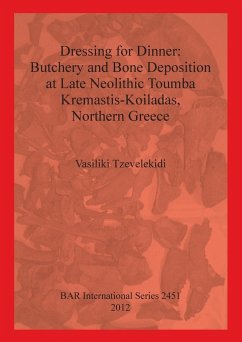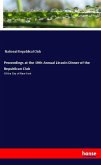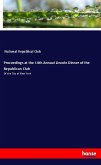Excavations at Late Neolithic Toumba Kremastis Koiladas, near the modern town of Kozani in north-western Greece, have yielded one of the largest faunal assemblages of this period from Greece (and probably also from Europe). This assemblage is important not only because of its large size, but also because of the character of the site and the apparently distinctive nature of bone deposition. Although near to a settlement mound or tell, the excavated area from which the assemblage is drawn appears to be of the 'flat/extended' type of site. As such, much of the bone assemblage is derived from clearly defined pits and ditches cut into the bedrock, offering much greater opportunities for contextual analysis than is usually possible on tell sites with complex vertical stratigraphy. Furthermore, the excavator's observation of complete animal skeletons in some pits suggested the possibility of structured deposition of a sort that, though well known from the Aegean Bronze Age, is as yet rare in the Neolithic of Greece. The assemblage studied here thus offers unusually high potential for investigation of patterns of bone deposition and animal consumption and also for exploration of the extent to which these processes may have obscured or distorted the evidence commonly used to infer patterns of animal management and land use. The questions addressed in this book are centred within four main contexts: Types of Neolithic settlements (tells vs. 'flat/extended' sites); The Neolithic household in Greece; Neolithic husbandry regimes in Greece; Scales and contexts of consumption during the Greek Neolithic.
Hinweis: Dieser Artikel kann nur an eine deutsche Lieferadresse ausgeliefert werden.
Hinweis: Dieser Artikel kann nur an eine deutsche Lieferadresse ausgeliefert werden.








